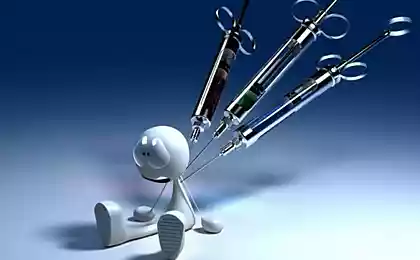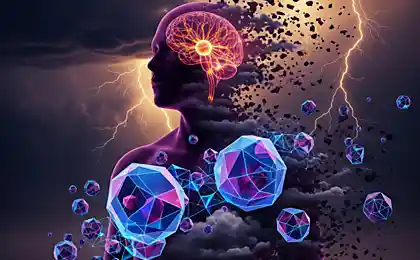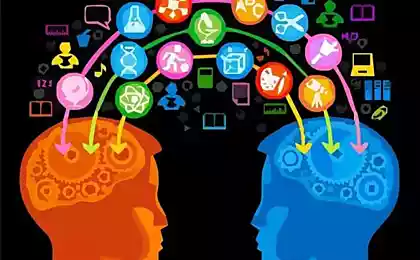669
Neuroscientist John Lilly about a non-existent objectivity and sense of fear
The American doctor, psychoanalyst and neuroscientist John Lilly (1915 — 2001) is best known for his bold exploration of the nature of consciousness. He first began studying how the human brain and psyche function in isolation.
Lilly conducted his research in sensory deprivation (floating) — closed capsule with salt water, which isolates man from any of the senses, and psychedelics used in the experiments. Published translated excerpts from an interview with John Lilly, in which a scientist talks about the rules of floating, non-existent objectivity and sense of fear.
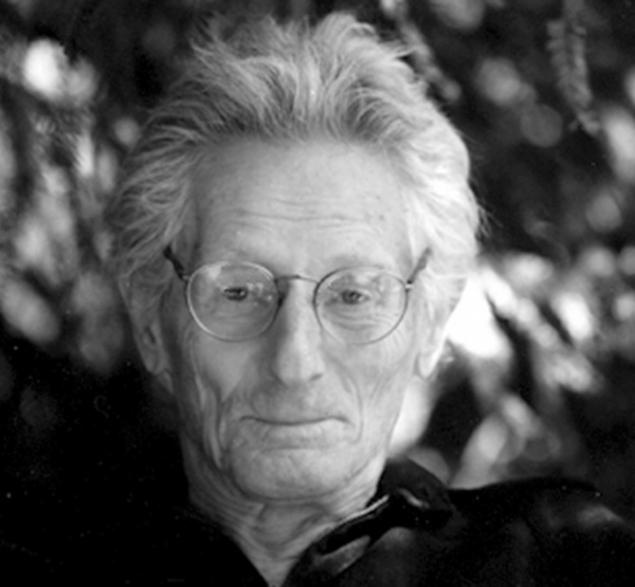
When I was 16, and I was preparing for College, I wrote for the school newspaper an article entitled "Reality". She determined my life path and direction of the thoughts, linking them with the learning activity and the structure of the brain.
I went to Caltech, began to study biological Sciences and for the first time took a course in neuroanatomy. Then I went to Dartmouth medical school, and there was another course, and then went to the University of Pennsylvania, and there studied the brain even further. So I learned more about him than I can tell.
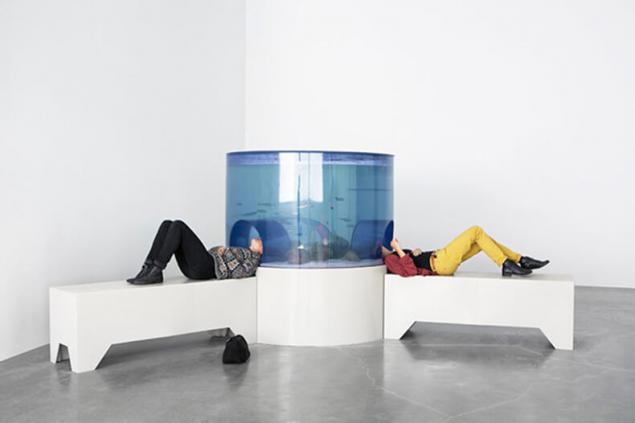
As a child I went to Catholic school and learned a lot there about rough boys and pretty girls. I fell in love with Margaret Vance, but didn't tell her anything, though it was incredible. I didn't know about sex, so I fantasize about how we exchange the urine.
My father was a machine with a belt that had to be put on the stomach or on a soft spot, and an electric motor, which belt vibrated. Once I stood on this machine, and the vibrations stimulated my erogenous zones. Then I suddenly felt how my body seemed to split apart, and my whole being was gripped delight. That was awesome.
The next morning I told the priest, and he said, "You masturbate!". I didn't know what he's talking about, and then I realized and replied, "No." He called it a mortal sin. I left the Church. I thought, "If they call a gift from God a mortal sin, to hell with them. That's not my God, they're just trying to control the people."
Objectivity and subjectivity is a trap that get people. I prefer the terms "internal common sense" and "external sanity." Domestic sanity — it is your life inside you. It's very personal, and you usually do not let anyone in, because there's going completely insane, although I often meet people with whom can talk about it.
When you get in a deprivation tank, external sanity disappears. External sanity is what we are doing now, during a conversation: sharing thoughts and the like. I'm not talking about your inner sanity, and the journalist doesn't tell her. However, if our internal sanity partially coincide, we can be friends.
I never use the word "hallucination" because it is highly desorientiert. It is part of an artificial explanatory principle and, therefore, useless. Richard Feynman, physicist, plunged into the deprivation tank 20 times. Every time he spent there for three hours, and then sent to me by mail his new book on physics.
On the title page, Feynman wrote: "thanks for the hallucinations." I called him up and said, "Look, dick, you're not acting like a scientist. You should describe what you have experienced, and do not throw it in the bin labeled "Hallucinations". It's a term from the field of psychiatry, which distorts the meaning; nothing from your experience cannot be called unreal".
What is this experience? Well, for example, a person might say, like a deprivation tank, he felt the nose has shifted to the navel, and then decided that he did not need a nose or a navel, and flew into space. There is nothing to explain — you just need to describe. Explanation in this field are meaningless.
I'm 35 years old and studied eight years in psychoanalysis before you go into the deprivation tank. At that moment I was freer than if I didn't do this. Someone will ask: "there is no connection." I can say, "Yes, but I learned that from my knowledge I don't need".
I learned all this bullshit that you carry people from academia, and also began to talk nonsense. My own nonsense — the guarantee that I will forget stuff the Professor, with the exception of the really valuable and interesting things.
When I go into the deprivation tank, the main principle that I use goes something like this: "for God's sake, not predopredelyaet, don't look for a goal, just let it happen." With ketamine and LSD I did the same thing; I slowly let go of the control over their own experience.
You know, some people lie in the camera hour and try to experience the same as me. I knew about it and eventually wrote the Foreword to the book "The Deep Self" and said, if you really want to know what it means to be in a deprivation tank, do not read my books, don't listen to me, and just go and lie down in it.
I have no mission. The mission would have made me ridiculous. Every time I've taken acid in a deprivation tank, this was not like before. I think I could not even begin to describe it. I received only a tenth of a percent of possible experience and described it in the books.
The universe protects us from our tendency to prejudge. When you take out of your body and give you complete freedom, you know that there are minds far greater than human. And then you become truly humble. Then you always have to go back, and you think: "Well, here I am, back in this damn body, and I'm not as smart as I was when was out there with them."
Have you read Katherine to Perth? She opened 42 peptide, which allow the brain to create a mood. Perth said: "once we understand brain chemistry, psychoanalysts will not need". It is believed that the brain is a huge multifaceted chemical plant.
We do not, of course, had nothing to generalize, but we know that in the case of some substances overdose leads to depression, other — to the euphoria, and so on. So, life is constantly modulated by the chemistry of the brain. Personally, I long ago gave up and stopped trying to calculate how the brain works — because he is so complex and vast. However, how complex, we still don't know.
The main task of science is to understand what a human being is and how it works from the point of view of biochemistry. We never understand how the brain works. I always say that my brain is a big Palace, and I'm just a small rodent, which it prowling. It is the brain owns me, not I — the brain. Large computer can fully simulate small, but it cannot simulate itself, because it will be nothing but imitation. No consciousness then will be gone.
I don't think people can create a supercomputer that will simulate the brain. Many of our discoveries were completely random. If we first opened the math brain, but now were able to advance much further.
God knows what language uses the brain. You can show digital operations of the brain, to analyze nerve impulses going up and down aksonam, but what are nerve impulses? As I understand it, it's just a way to restore the healthy state of the system that is in the middle of the axon.
Nerve impulses that descend aksonam, just clean it a Central point, to prepare them for the next impact time. It's like a dream. Sleep is a state in which the human biocomputer combines and analyzes what happened outside, throws out useless memories and sorts useful. It looks like a large computer that each time before you start get an empty memory. We all the time do.
People can say that in the deprivation tank, he felt the nose has shifted to the navel, and then decided that he did not need a nose or a navel, and flew into space
We're all looking for meaning and explanation. It is naive. The explanatory principle protects us from the horrors of the unknown; but I prefer the unknown, I am a disciple of surprises.
Margaret Preston (assistant Lilly in Scientific-issledovatelskaya communication St. Thomas in the virgin Islands) something I was taught. Once I came to University, and she said, "Dr. Lilly, you are constantly trying to make something happen. This time it won't work: you just sit and watch". You know what I mean? If I create events, I eventually get bored. But if I can just relax and let things happen just like that, boredom is not, and I'll give chance to others. Now I can afford it, because I don't need to earn a living. However, some people are able to earn and behave damn passive.
You can become an administrator who knows nothing, and then people will have something to tell you. My father was the head of a large banking network, and he's taught me in terms of passivity. He said, "You must learn to act like you're mad, and you'll be ahead of those who are pissed off really."
I said, "But what about love?". He said. All these powerful feelings... you Can behave like you're experiencing them, but to remain indifferent, and you will lose the ability to think clearly.
I learned that lesson. One day I was very angry at his older brother and threw his jar of calcium carbide, and it exploded, just because he teased me so much. He teased me terribly. I had thrown a jar, and she flew past, inches from his head. I froze and thought, "Oh my God, I could kill him! I'm never going to get angry."
I once wrote a Chapter called "Where are the army?". Know where they come from? From the traditions. Children learn the history of the war, so they are all programmed in advance. If you read history books, you will understand that they are all about war, it's just incredible!
In Latin class, I studied the wars of Caesar, then engaged in the French and began to examine the wars of Napoleon, and so on and so forth. What do we learn about Caesar? It is not necessary to divide Gaul into three parts. What we have learned about Cleopatra? That you can kill yourself snakebite. But if you start to study the history of Italy and meet with Leonardo da Vinci or Galileo Galilei, it will all fall apart. They lived by themselves and did their work and it is gorgeous. This is the only part of the story that could be interesting.
The goal of fear is the movement from ortonii to metanoia through paranoia. Hortonia is how most people think; they create the simulation options that are take. Metanoia is when you leave it all behind and be able to appreciate what a high level of mental development. But when you do it for the first time, you scared to death
When I first went into the chamber of deprivation after taking the acid, I panicked. I suddenly saw a line of memorials the National Institute of mental health: "Never take acid alone."
One researcher has neglected this rule, and ate it with his own cassette recorder. I could not what more to think. Great happiness that I so strongly was frightened. I had no idea that could happen. It is real rocket fuel!
I moved in the Universe further than ever. So paranoia is the rocket fuel of metanoia. Before I began to take in the deprivation tank, I was afraid of water. I've been sailing in the ocean and was terrified of sharks. It was a real long phobia. In the end, I went into the chamber and passed through this horrible experience, just scared to death. Now water I'm not afraid anymore.
See also: Undigested lessons of the past
You have NO desires
I never tell what. My therapist is good is described. Once I came to him, sat down in the chair and said, "I just got a new idea, but I'm not going to talk about it". He said, "Oh, so you realized that the new idea is similar to the embryo. It can kill with a needle, but if the embryo has already become a fetus or a baby, he will feel only a slight tingling sensation". You need to give the idea of growing up to do before you begin to tell about it.
Author: Natalia Health Professionals
P. S. And remember, only by changing their consumption — together we change the world! ©
Source: theoryandpractice.ru/posts/10610
Lilly conducted his research in sensory deprivation (floating) — closed capsule with salt water, which isolates man from any of the senses, and psychedelics used in the experiments. Published translated excerpts from an interview with John Lilly, in which a scientist talks about the rules of floating, non-existent objectivity and sense of fear.

When I was 16, and I was preparing for College, I wrote for the school newspaper an article entitled "Reality". She determined my life path and direction of the thoughts, linking them with the learning activity and the structure of the brain.
I went to Caltech, began to study biological Sciences and for the first time took a course in neuroanatomy. Then I went to Dartmouth medical school, and there was another course, and then went to the University of Pennsylvania, and there studied the brain even further. So I learned more about him than I can tell.

As a child I went to Catholic school and learned a lot there about rough boys and pretty girls. I fell in love with Margaret Vance, but didn't tell her anything, though it was incredible. I didn't know about sex, so I fantasize about how we exchange the urine.
My father was a machine with a belt that had to be put on the stomach or on a soft spot, and an electric motor, which belt vibrated. Once I stood on this machine, and the vibrations stimulated my erogenous zones. Then I suddenly felt how my body seemed to split apart, and my whole being was gripped delight. That was awesome.
The next morning I told the priest, and he said, "You masturbate!". I didn't know what he's talking about, and then I realized and replied, "No." He called it a mortal sin. I left the Church. I thought, "If they call a gift from God a mortal sin, to hell with them. That's not my God, they're just trying to control the people."
Objectivity and subjectivity is a trap that get people. I prefer the terms "internal common sense" and "external sanity." Domestic sanity — it is your life inside you. It's very personal, and you usually do not let anyone in, because there's going completely insane, although I often meet people with whom can talk about it.
When you get in a deprivation tank, external sanity disappears. External sanity is what we are doing now, during a conversation: sharing thoughts and the like. I'm not talking about your inner sanity, and the journalist doesn't tell her. However, if our internal sanity partially coincide, we can be friends.
I never use the word "hallucination" because it is highly desorientiert. It is part of an artificial explanatory principle and, therefore, useless. Richard Feynman, physicist, plunged into the deprivation tank 20 times. Every time he spent there for three hours, and then sent to me by mail his new book on physics.
On the title page, Feynman wrote: "thanks for the hallucinations." I called him up and said, "Look, dick, you're not acting like a scientist. You should describe what you have experienced, and do not throw it in the bin labeled "Hallucinations". It's a term from the field of psychiatry, which distorts the meaning; nothing from your experience cannot be called unreal".
What is this experience? Well, for example, a person might say, like a deprivation tank, he felt the nose has shifted to the navel, and then decided that he did not need a nose or a navel, and flew into space. There is nothing to explain — you just need to describe. Explanation in this field are meaningless.
I'm 35 years old and studied eight years in psychoanalysis before you go into the deprivation tank. At that moment I was freer than if I didn't do this. Someone will ask: "there is no connection." I can say, "Yes, but I learned that from my knowledge I don't need".
I learned all this bullshit that you carry people from academia, and also began to talk nonsense. My own nonsense — the guarantee that I will forget stuff the Professor, with the exception of the really valuable and interesting things.
When I go into the deprivation tank, the main principle that I use goes something like this: "for God's sake, not predopredelyaet, don't look for a goal, just let it happen." With ketamine and LSD I did the same thing; I slowly let go of the control over their own experience.
You know, some people lie in the camera hour and try to experience the same as me. I knew about it and eventually wrote the Foreword to the book "The Deep Self" and said, if you really want to know what it means to be in a deprivation tank, do not read my books, don't listen to me, and just go and lie down in it.
I have no mission. The mission would have made me ridiculous. Every time I've taken acid in a deprivation tank, this was not like before. I think I could not even begin to describe it. I received only a tenth of a percent of possible experience and described it in the books.
The universe protects us from our tendency to prejudge. When you take out of your body and give you complete freedom, you know that there are minds far greater than human. And then you become truly humble. Then you always have to go back, and you think: "Well, here I am, back in this damn body, and I'm not as smart as I was when was out there with them."
Have you read Katherine to Perth? She opened 42 peptide, which allow the brain to create a mood. Perth said: "once we understand brain chemistry, psychoanalysts will not need". It is believed that the brain is a huge multifaceted chemical plant.
We do not, of course, had nothing to generalize, but we know that in the case of some substances overdose leads to depression, other — to the euphoria, and so on. So, life is constantly modulated by the chemistry of the brain. Personally, I long ago gave up and stopped trying to calculate how the brain works — because he is so complex and vast. However, how complex, we still don't know.
The main task of science is to understand what a human being is and how it works from the point of view of biochemistry. We never understand how the brain works. I always say that my brain is a big Palace, and I'm just a small rodent, which it prowling. It is the brain owns me, not I — the brain. Large computer can fully simulate small, but it cannot simulate itself, because it will be nothing but imitation. No consciousness then will be gone.
I don't think people can create a supercomputer that will simulate the brain. Many of our discoveries were completely random. If we first opened the math brain, but now were able to advance much further.
God knows what language uses the brain. You can show digital operations of the brain, to analyze nerve impulses going up and down aksonam, but what are nerve impulses? As I understand it, it's just a way to restore the healthy state of the system that is in the middle of the axon.
Nerve impulses that descend aksonam, just clean it a Central point, to prepare them for the next impact time. It's like a dream. Sleep is a state in which the human biocomputer combines and analyzes what happened outside, throws out useless memories and sorts useful. It looks like a large computer that each time before you start get an empty memory. We all the time do.
People can say that in the deprivation tank, he felt the nose has shifted to the navel, and then decided that he did not need a nose or a navel, and flew into space
We're all looking for meaning and explanation. It is naive. The explanatory principle protects us from the horrors of the unknown; but I prefer the unknown, I am a disciple of surprises.
Margaret Preston (assistant Lilly in Scientific-issledovatelskaya communication St. Thomas in the virgin Islands) something I was taught. Once I came to University, and she said, "Dr. Lilly, you are constantly trying to make something happen. This time it won't work: you just sit and watch". You know what I mean? If I create events, I eventually get bored. But if I can just relax and let things happen just like that, boredom is not, and I'll give chance to others. Now I can afford it, because I don't need to earn a living. However, some people are able to earn and behave damn passive.
You can become an administrator who knows nothing, and then people will have something to tell you. My father was the head of a large banking network, and he's taught me in terms of passivity. He said, "You must learn to act like you're mad, and you'll be ahead of those who are pissed off really."
I said, "But what about love?". He said. All these powerful feelings... you Can behave like you're experiencing them, but to remain indifferent, and you will lose the ability to think clearly.
I learned that lesson. One day I was very angry at his older brother and threw his jar of calcium carbide, and it exploded, just because he teased me so much. He teased me terribly. I had thrown a jar, and she flew past, inches from his head. I froze and thought, "Oh my God, I could kill him! I'm never going to get angry."
I once wrote a Chapter called "Where are the army?". Know where they come from? From the traditions. Children learn the history of the war, so they are all programmed in advance. If you read history books, you will understand that they are all about war, it's just incredible!
In Latin class, I studied the wars of Caesar, then engaged in the French and began to examine the wars of Napoleon, and so on and so forth. What do we learn about Caesar? It is not necessary to divide Gaul into three parts. What we have learned about Cleopatra? That you can kill yourself snakebite. But if you start to study the history of Italy and meet with Leonardo da Vinci or Galileo Galilei, it will all fall apart. They lived by themselves and did their work and it is gorgeous. This is the only part of the story that could be interesting.
The goal of fear is the movement from ortonii to metanoia through paranoia. Hortonia is how most people think; they create the simulation options that are take. Metanoia is when you leave it all behind and be able to appreciate what a high level of mental development. But when you do it for the first time, you scared to death
When I first went into the chamber of deprivation after taking the acid, I panicked. I suddenly saw a line of memorials the National Institute of mental health: "Never take acid alone."
One researcher has neglected this rule, and ate it with his own cassette recorder. I could not what more to think. Great happiness that I so strongly was frightened. I had no idea that could happen. It is real rocket fuel!
I moved in the Universe further than ever. So paranoia is the rocket fuel of metanoia. Before I began to take in the deprivation tank, I was afraid of water. I've been sailing in the ocean and was terrified of sharks. It was a real long phobia. In the end, I went into the chamber and passed through this horrible experience, just scared to death. Now water I'm not afraid anymore.
See also: Undigested lessons of the past
You have NO desires
I never tell what. My therapist is good is described. Once I came to him, sat down in the chair and said, "I just got a new idea, but I'm not going to talk about it". He said, "Oh, so you realized that the new idea is similar to the embryo. It can kill with a needle, but if the embryo has already become a fetus or a baby, he will feel only a slight tingling sensation". You need to give the idea of growing up to do before you begin to tell about it.
Author: Natalia Health Professionals
P. S. And remember, only by changing their consumption — together we change the world! ©
Source: theoryandpractice.ru/posts/10610




